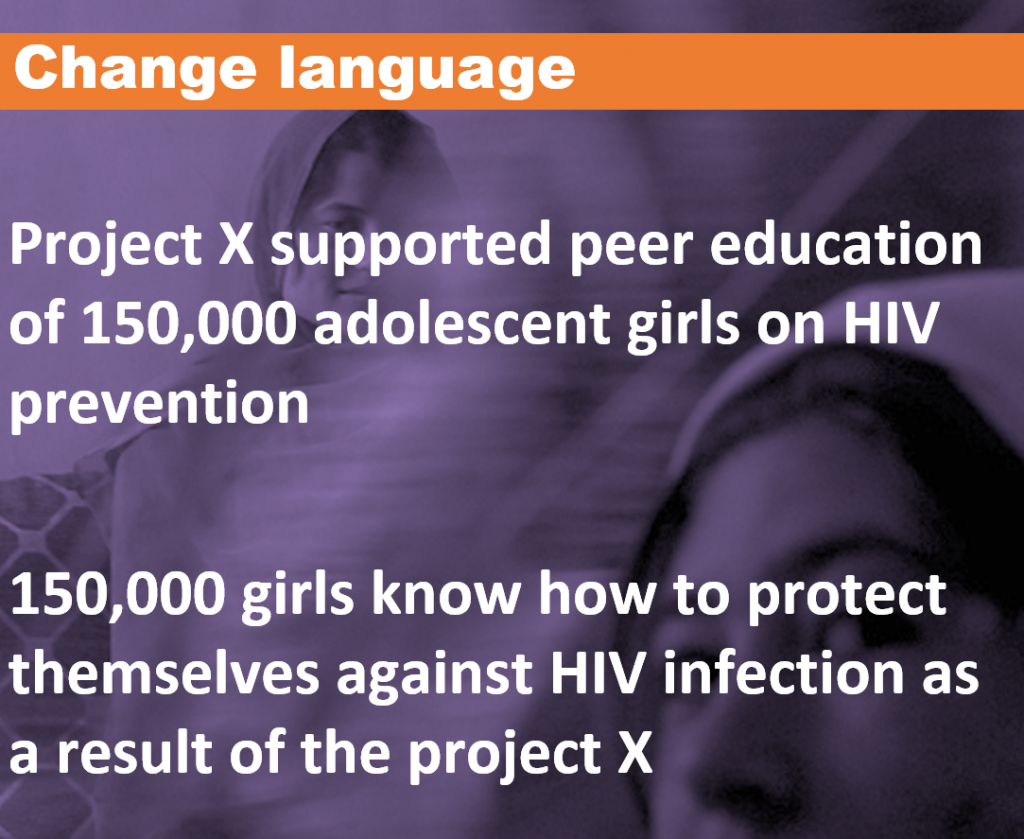An engaging report uses ‘change language’ instead of action language.
Hunh?
Ok, it’s not as complicated as these big words suggest. Language matters. Let’s look at it closer:

ACTION LANGUAGE
Action language reflects the completion of a series of activities. An example of action language is:
“XYZ supported the peer education of 150,000 girls on HIV prevention”
Avoid using action language.
CHANGE LANGUAGE
Instead of action language, use change language. Change language reports on the results of an action instead of the action itself.
An example of action language is:
“150,000 girls know how to protect themselves against HIV infection with the support of XYZ”
PHRASES TO AVOID
Using change language rather than action language means that we avoid action-focused phrases like:
“Organization XYZ supported …”
“Organization XYZ worked with …”
“Organization XYZ enhances…”
“Organization XYZ promoted…”
“Organization XYZ focused on…”
“Organization XYZ sought to…”
“Organization XYZ attempted to…”
Instead, describe the change that these activities lead to.
EXCLUDE INTERNAL MATTERS
Avoid reporting on internal matters which are not directly related to delivering results. This includes e.g. capacity-building of staff, issues to do with project management, implementation, staffing, etc.
Two examples of what not to include:
In 2013, 15 XYZ and project staff were trained in human rights
Management of the project in the second half of 2013 has improved significantly, as has communication between counterparts, project staff and organization XYZ.
What to learn more about how to effectively report on results? Check out our detailed video course on Practical Results Based Management on Udemy.